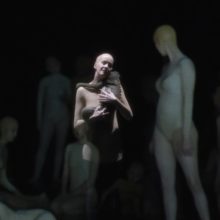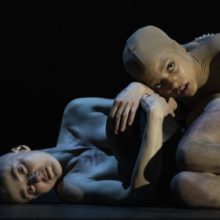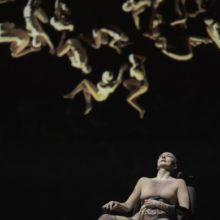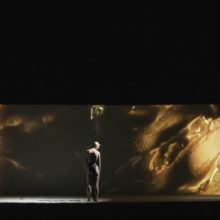Troy has fallen, pillars of smoke are rising up from the rubble, and the victorious Greeks are preparing to return home. The surviving women of Troy stand before the city’s gates, on the threshold between their old life as members of the elite and their new life of slavery. The worst conceivable loss and downfall combined with the greatest possible uncertainty. Hecuba, queen of Troy, laments the murder of her husband, Priam, and the death of almost all of her many children; what fate has in store for her, she does not know. Waiting by her side are Cassandra, one of Hecuba’s surviving children and the seer whose prophecy was disregarded; the queen’s daughter-in-law Andromache with her young son Astyanax, the last male heir to the Trojan throne; and Helen, the Greek beauty blamed for the war, who is now awaiting her sentencing.
The Trojan women have nothing left but their own bodies – filled with memories and raging pain, wounded, scarred, lamenting, with one foot in the underworld and the other in this life, they try and find their place – to scratch out the eyes of their tormentors. Ovid describes Hecuba’s “wrath mingling with her grief”. This shadowy space inhabited by the Trojan women is at the core of Adena Jacobs’s stark, expressive production. The Australian director specifically explores the fate of female bodies in war, where the battlefield is the female body.
The Viennese playwright Gerhild Steinbruch translated the works of Ovid, Seneca, Euripides and Jane M Griffiths into German for this production.








